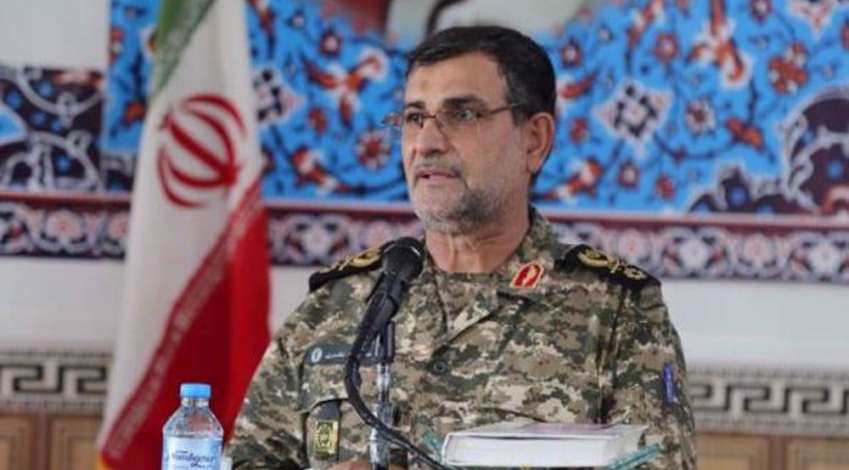Sunday 1 May 2022 - 16:56
Story Code : 396211
IRGC Navy chief says 'nobody can put a fake name' on Persian Gulf
Speaking on the occasion of the Persian Gulf National Day, Rear Admiral Ali Reza Tangsiri said, �This is the Persian Gulf and nobody can put a fake name on this location.�
"The Persian Gulf has been the Persian Gulf for ages, because the whole area was under Persian control � and today on the southern side of the Persian Gulf we have the Arab states," he said.
Tangsiri said the presence of foreigners in this region signals the importance and high sensitivity of the Persian Gulf, pointing out that the region was rich in energy resources, including oil and gas, as well as fish.
The IRGC top commander also�said, "the onus is upon our Iranian youth, God-willing, to duly defend and protect this valuable inheritance left to us by Persians of the past, that must be transferred on to future generations."
He insisted that regional states themselves can maintain the security in this sensitive region, and there is no need for the presence of foreign countries here.
There is no justification for foreign forces presence in the Persian Gulf, he noted, adding that them being here was definitely creating insecurity.
He went on to say that paving the way for foreigners� intervention in the region did not convey a good message.
The Americans and Israelis have no place in the Persian Gulf, he said, warning that any person or any country attempting to target Iran's interests in the area will face dire consequences.
Elsewhere in his remarks, Tangsiri said�IRGC�s Navy, in the past eight years, has been running Rahiyan Noor (Travelers of Light) tours in the Persian Gulf to better introduce the region to Iranians, particularly the youth.
Persian Gulf Day is held annually on April 30, which marks the anniversary of Shah Abbas I of Persia�s successful military campaign against the Portuguese Navy, forcing them out of the Strait of Hormuz in 1622.
However, after the Portuguese left the British established political control over much of the Persian Gulf in the early 1800s and kept it for 150 years, later giving their place to the United States.
With some 250,000 square kilometers in area, the Persian Gulf is surrounded by the Shatt al-Arab waterway in the north, which forms the frontier between Iran and Iraq, and the Strait of Hormuz in the south, which connects the sea to the Gulf of Oman and the Indian Ocean.
The Persian Gulf littoral states include Iran, Oman, Iraq, Kuwait, Saudi Arabia, Bahrain, Qatar, and the United Arab Emirates. The Strait of Hormuz connects the Persian Gulf to the Gulf of Oman.
Today, the Persian Gulf is a busy international trade route for transferring oil and gas, connecting West Asia to Africa, India, and China.
By PRESS TV�
# Tags











